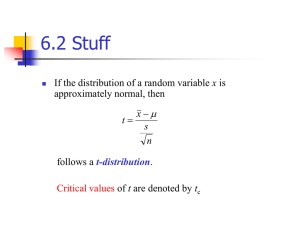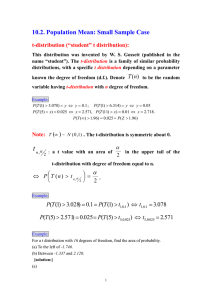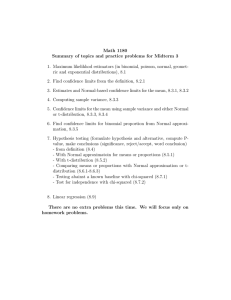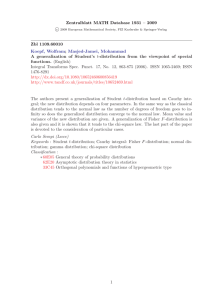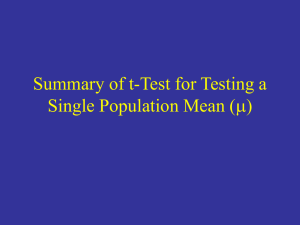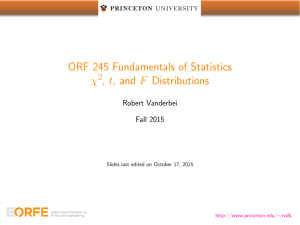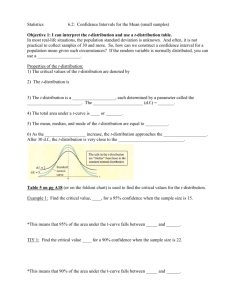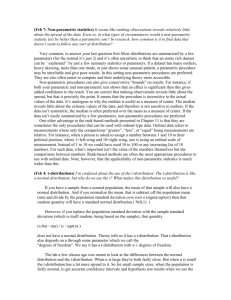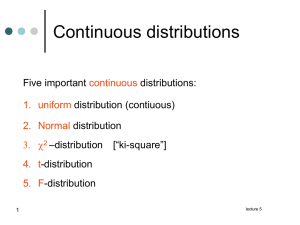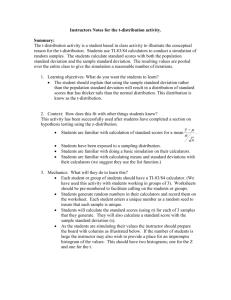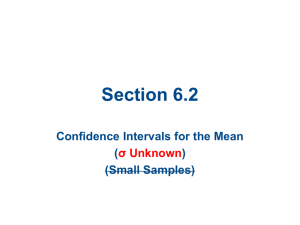When to Use the T
advertisement
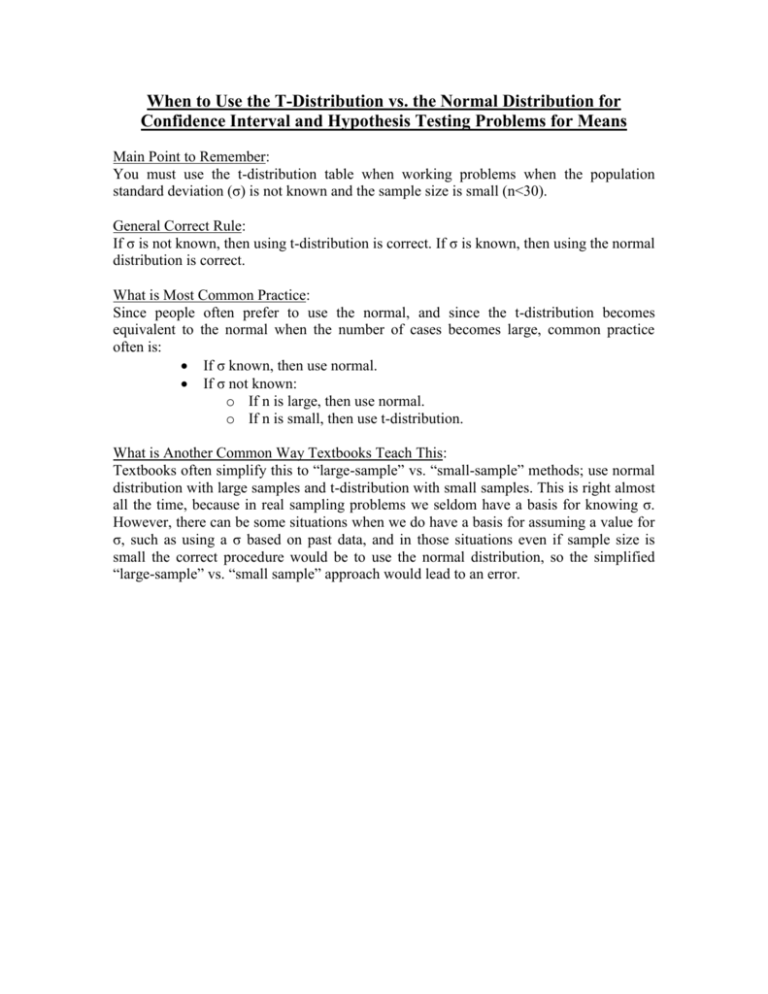
When to Use the T-Distribution vs. the Normal Distribution for Confidence Interval and Hypothesis Testing Problems for Means Main Point to Remember: You must use the t-distribution table when working problems when the population standard deviation (σ) is not known and the sample size is small (n<30). General Correct Rule: If σ is not known, then using t-distribution is correct. If σ is known, then using the normal distribution is correct. What is Most Common Practice: Since people often prefer to use the normal, and since the t-distribution becomes equivalent to the normal when the number of cases becomes large, common practice often is: If σ known, then use normal. If σ not known: o If n is large, then use normal. o If n is small, then use t-distribution. What is Another Common Way Textbooks Teach This: Textbooks often simplify this to “large-sample” vs. “small-sample” methods; use normal distribution with large samples and t-distribution with small samples. This is right almost all the time, because in real sampling problems we seldom have a basis for knowing σ. However, there can be some situations when we do have a basis for assuming a value for σ, such as using a σ based on past data, and in those situations even if sample size is small the correct procedure would be to use the normal distribution, so the simplified “large-sample” vs. “small sample” approach would lead to an error.
